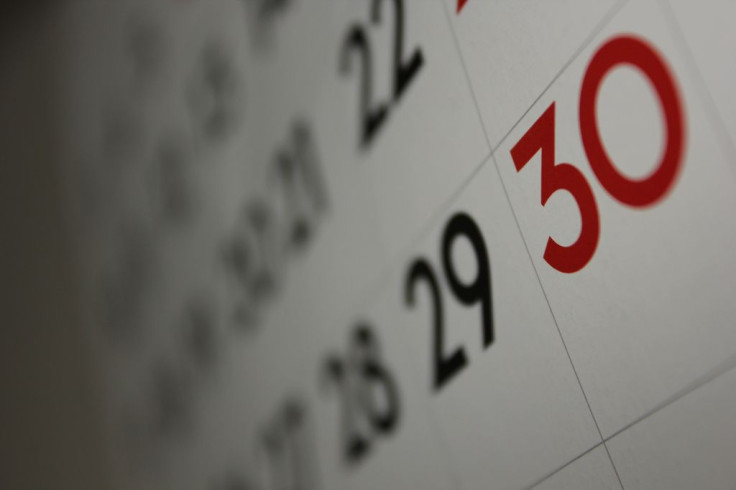Goal Setting Starts With Expectations: Shoot For Days, Not Years

Whether you want to lose 5 pounds by next month or secure your retirement fund three decades from now, psychologists say the way you think about setting goals remains pretty much the same. The trick, a new study finds, is framing your journey not in terms of months or years, but days.
Understandably, it may feel odd to set a goal a thousand days from now, instead of simplifying it to a measly three years, but that doesn’t seem to be how our brains work. Lead researcher of the new study, Dr. Daphna Oyserman, psychological scientist from the University of Southern California, argues we don’t feel the need to take the first step because we don’t really know who we’ll be in three years. By then, we might not as well even call the goals ours.
Days are different, Oyserman says. Instead of doing what’s best for your future self years ahead of time, do what’s best for your current self, just a few dozen days (or thousands) ahead of time. “This is a new way to think about reaching goals that does not require willpower and is not about having character or caring,” Oyserman said in a statement. Paradoxically, being better in the future requires only that you stay in the present.
Oyserman and her colleague Neil A. Lewis Jr., of the University of Michigan, performed seven experiments to gauge how people thought about lengths of time. The first two involved 162 people who read six scenarios, three in which time metrics were involved and three where they were not. They were asked to come up with a scenario happening in the future, such as studying for an exam or planning a party. The trick was, the researchers set the terms — days, months, or years.
When thinking in days over months, people put the dates an average of 29.7 days sooner. When thinking of months over years, they put the dates an average of 8.7 months sooner. The goal of these studies, Oyserman says, was simply to assess the limits of allotting time when it’s grouped narrowly or broadly: Days are planned for the short-term, and so are months when the alternative is years.
The remaining studies put that principal into action. They measured how likely people were to start planning for major decisions, such as college or retirement, depending on how far away those decisions were. Participants could choose between two lengths of time, one measured in years and the other in days. The results showed people decided to start planning four times sooner when they framed the goal as a certain number of days away, rather than years.
To Oyserman and Lewis, the experiments boiled down to a key truth about how people see themselves. In a kind of existential way, goals are easier to achieve when we live in the moment. “Interestingly, the way our minds works,” Oyserman told Medical Daily, “is that it’s either now or it’s not now.” When framed in terms of days, we seem to give ourselves only two options — now or never — regardless of how large the number preceding it is.
Humans have a famously hard time juggling large numbers, so focusing on the “day” part of the goal rather than the “10,950” part reframes the goals’ immediacy. Day to day, we are still essentially us. Year to year, the personhood changes. The goal stops being immediate and instead becomes a future investment in a person who we will eventually come to embody.
Oyserman and Lewis can’t tell from their study whether day-oriented goals are achieved more often; they only looked at how people planned for them. In future studies, they hope to magnify the scale of the findings to the decade level and study attitudes toward environmental activism.
“Climatologists talk in centuries, which is really far away and you will be dead,” Oyserman said. But decades, while objectively longer than days, may be short enough to get people onboard with going green.
Source: Lewis N, Oyserman D. When Does the Future Begin? Time Metrics Matter, Connecting Present and Future Selves. Psychological Science. 2015.
Published by Medicaldaily.com



























